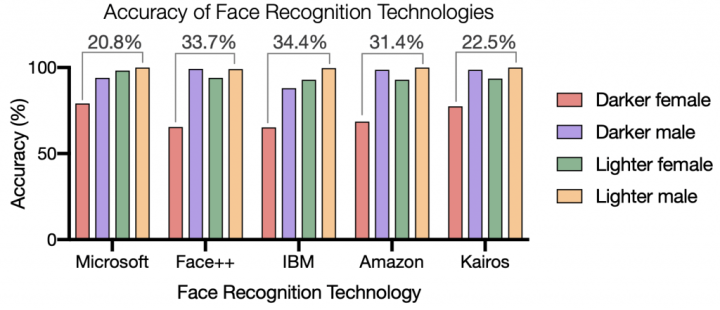Recently, as artificial intelligence continues to emerge in AI development and deployment, the need for ethical considerations has become more critical than ever. In 2024, the focus on addressing bias, ensuring transparency, and promoting the responsible use of AI technologies has intensified, with organizations and governments taking significant steps to mitigate potential risks and build trust in AI systems.
One of the most pressing concerns in AI ethics is ‘algorithmic bias’. Recent studies have highlighted alarming disparities in AI performance across different demographic groups. For instance, research conducted by Human Made has shown that autonomous driving systems are 20% less effective at recognizing children than adults and 7.5% less accurate in identifying darker-skinned pedestrians than lighter-skinned ones. This bias, likely from imbalanced training data, accentuates the crucial role of diverse and representative datasets in AI development, promoting inclusivity and fairness.

Leading tech companies and research institutions implement rigorous data curation processes to combat biases and employ data augmentation and algorithmic fairness techniques. For example, some organizations are now using federated learning, which allows AI models to be trained across distributed devices without centralizing raw data, thereby reducing the risk of perpetuating existing biases while maintaining privacy.
The responsible use of AI extends beyond technical considerations to encompass broader societal impacts. In 2021, UNESCO published the first-ever global standard on AI ethics, emphasizing human rights and dignity protection. This framework has since influenced policy-making and corporate practices worldwide. For instance, in the UK, concerns about AI bias in public sector tools have led to increased scrutiny and calls for reform, particularly after reports of facial recognition technology used by a significant police force falsely detecting black individuals at five times the rate of white individuals.
Privacy protection in AI applications remains a significant challenge. With AI systems often relying on vast amounts of personal data, ensuring data security and respecting individual privacy rights is paramount. Regulations like the General Data Protection Regulation (GDPR) in Europe and the California Consumer Privacy Act (CCPA) in the United States have set stringent data collection, storage, and processing standards. Companies are now implementing robust data governance frameworks and privacy-preserving technologies to comply with these regulations and maintain public trust.
Recently, education and awareness about AI ethics have become increasingly important. Companies are investing in various training programs to help their employees understand the ethical implications of AI and how to develop and use AI responsibly. This includes raising awareness about unconscious biases that may inadvertently be encoded into AI systems and teaching best practices for ethical data usage. It’s crucial to remember that addressing bias, ensuring transparency, and promoting responsible use requires initial effort and ongoing commitment and collaboration across industries, governments, and academia.
< Reference >
Koo, Jahoon, et al. “Security and Privacy in Big Data Life Cycle: A Survey and Open Challenges.” MDPI, Multidisciplinary Digital Publishing Institute, 17 Dec. 2020, www.mdpi.com/2071-1050/12/24/10571. Accessed 06 July 2024.
Navigating AI Ethics and Trust in the Age of Innovation – Venture Café Cambridge. https://venturecafecambridge.org/sessions/navigating-ai-ethics-and-trust-in-the-age-of-innovation/
“Navigating Ai Ethics and Trust in the Age of Innovation.” Venture Café Cambridge, 27 July 2023, venturecafecambridge.org/sessions/navigating-ai-ethics-and-trust-in-the-age-of-innovation/. Accessed 06 July 2024.
SITNFlash. “Racial Discrimination in Face Recognition Technology.” Science in the News, 26 Oct. 2020, sitn.hms.harvard.edu/flash/2020/racial-discrimination-in-face-recognition-technology/. Accessed 06 July 2024.
Leave a Reply